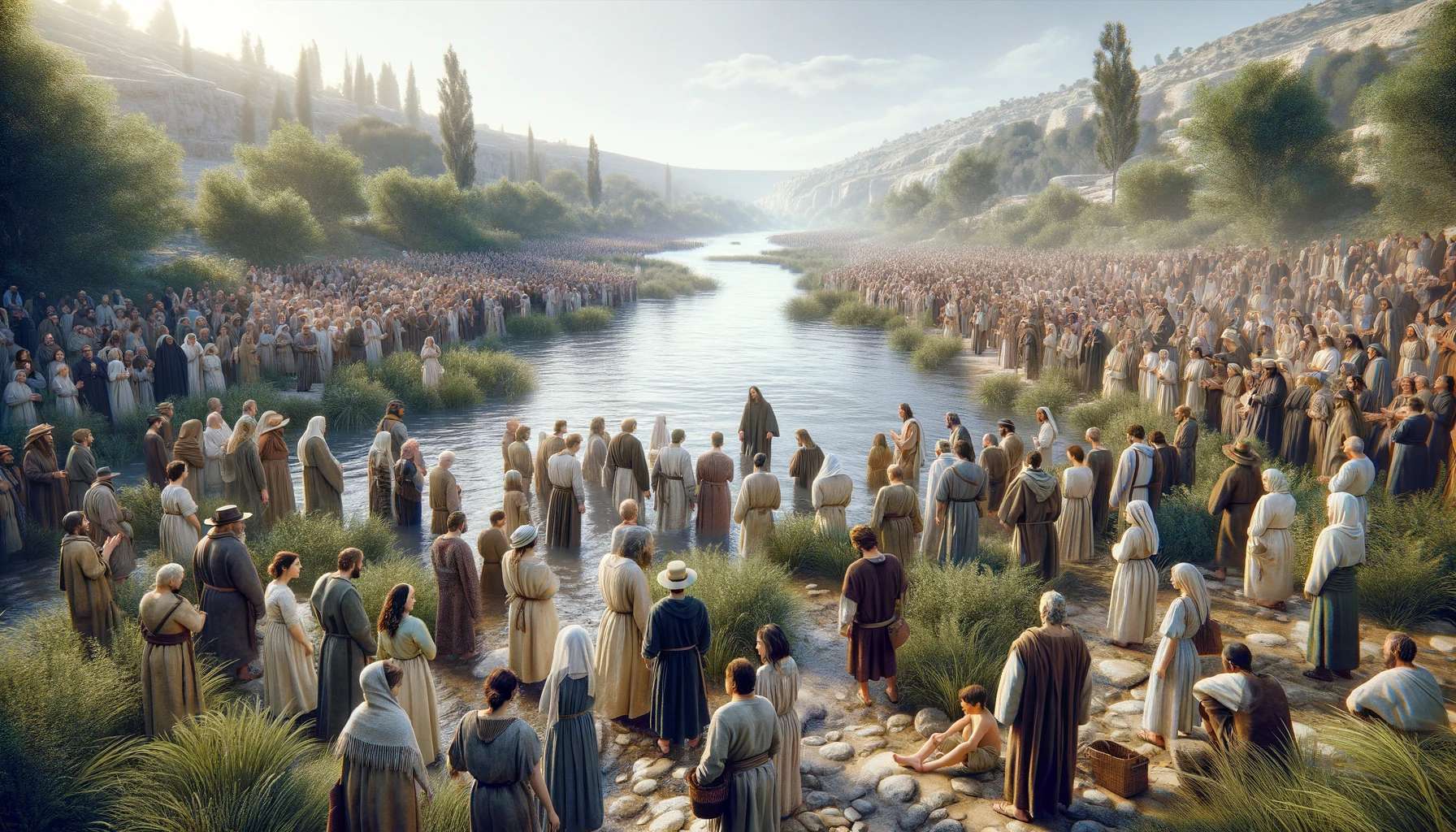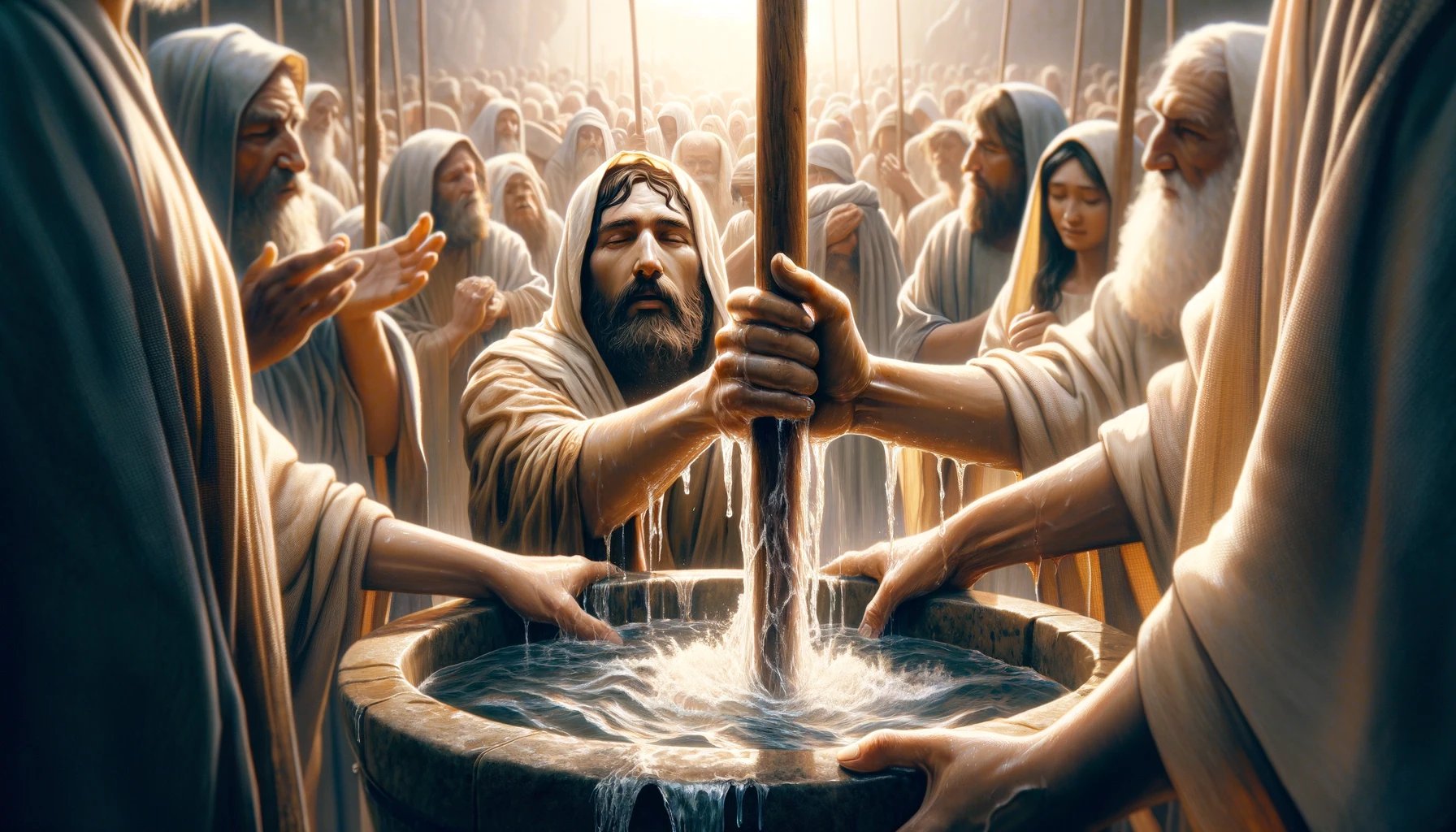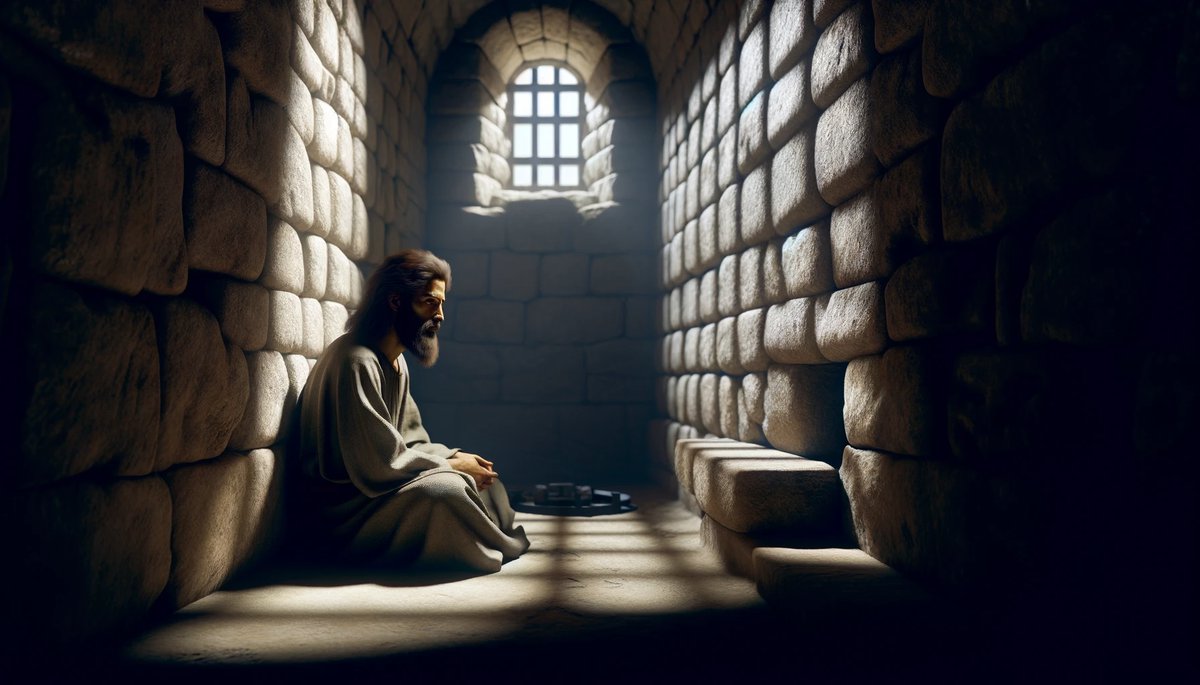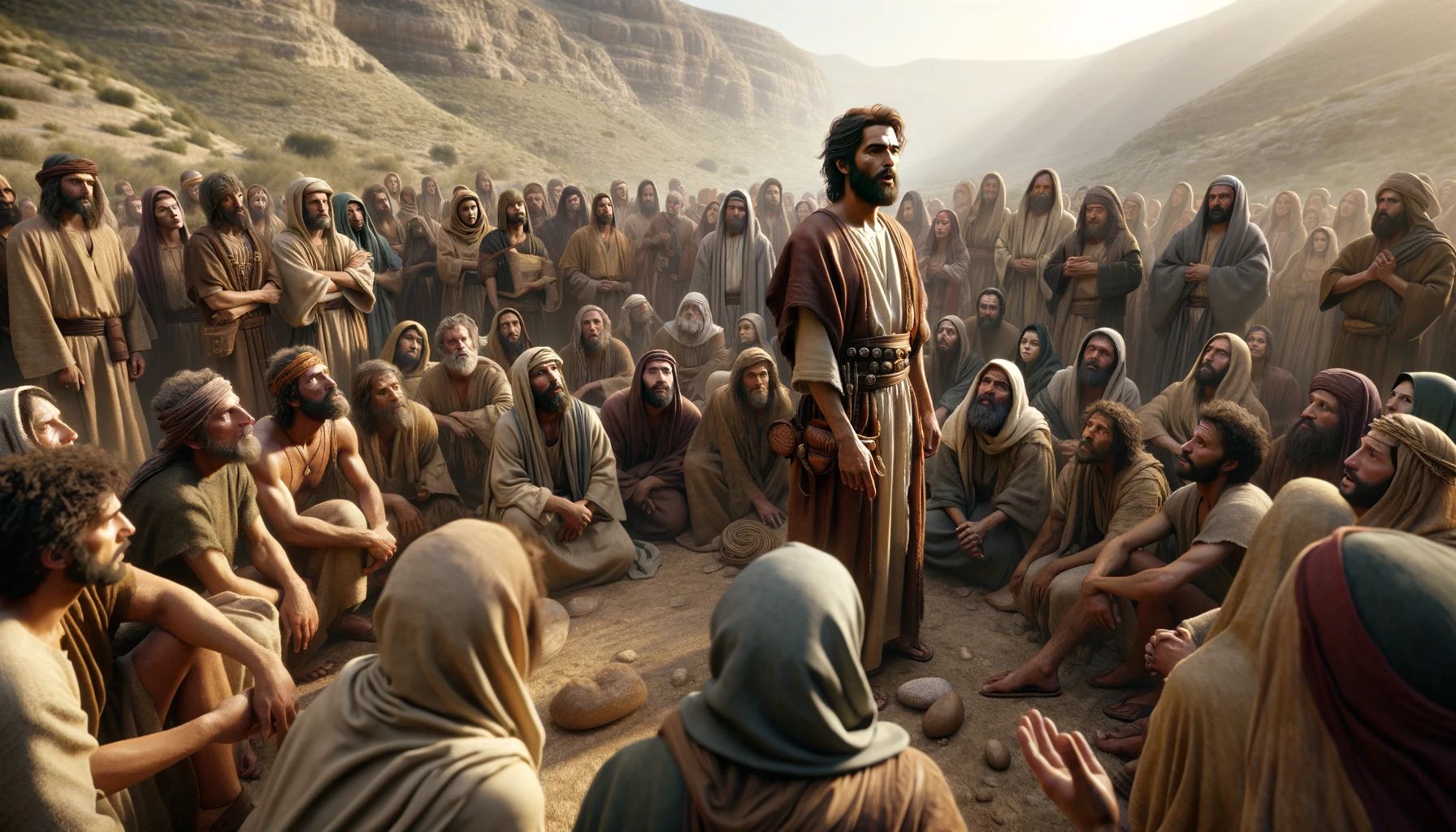Home>Theology and Spirituality>Why Was John The Baptist Killed By Herod
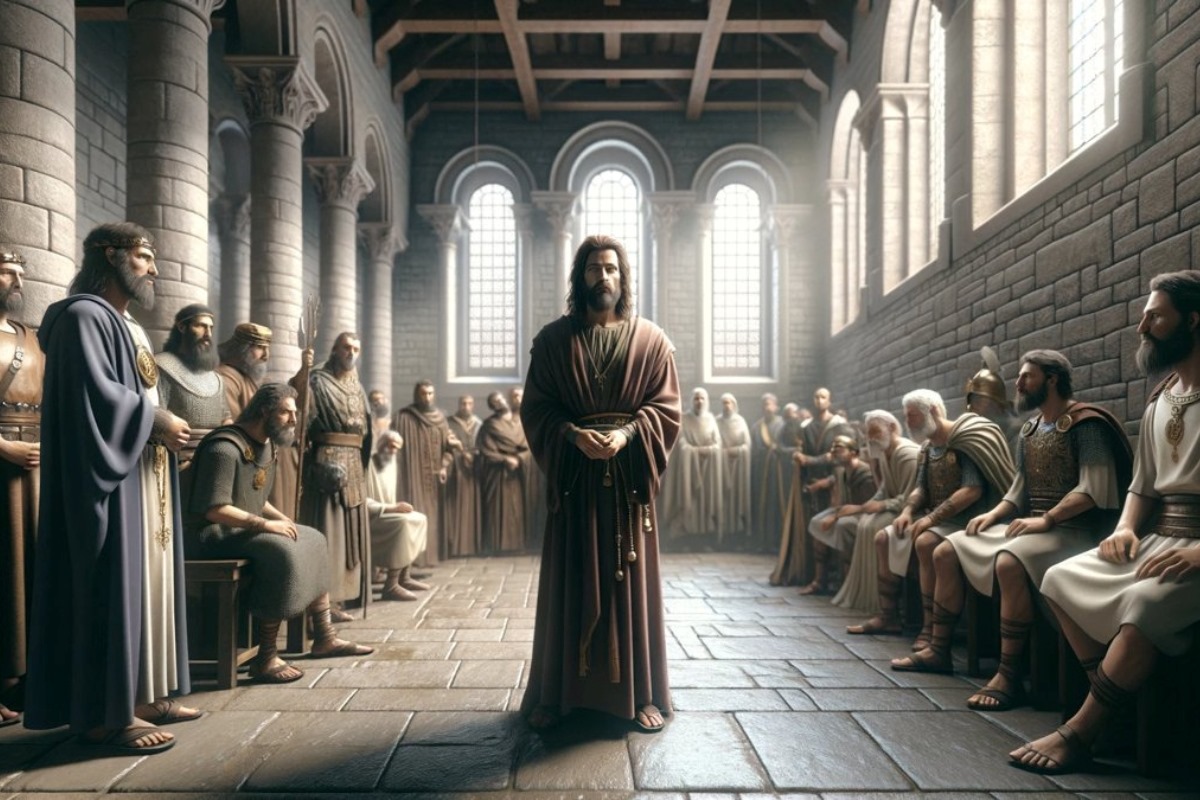

Theology and Spirituality
Why Was John The Baptist Killed By Herod
Published: February 20, 2024
Peter Smith, Editorial Director at Christian.net, combines deep insights into faith, politics, and culture to lead content creation that resonates widely. Awarded for his contributions to religious discourse, he previously headed a major organization for religious communicators, enhancing dialogue on faith's societal impacts.
Discover the reasons behind the killing of John the Baptist by Herod in this insightful exploration of theology and spirituality. Uncover the historical and religious context of this significant event.
(Many of the links in this article redirect to a specific reviewed product. Your purchase of these products through affiliate links helps to generate commission for Christian.net, at no extra cost. Learn more)
Table of Contents
Introduction
The story of John the Baptist's tragic demise at the hands of Herod is a compelling and poignant tale that continues to captivate and intrigue people across the globe. This pivotal event in biblical history is shrouded in mystery and raises profound questions about power, morality, and the clash between spiritual conviction and earthly authority.
The narrative of John the Baptist's life and death is deeply intertwined with the political and religious landscape of ancient Judea. It offers a profound insight into the complexities of human nature and the timeless struggle between righteousness and corruption. As we delve into the circumstances surrounding John the Baptist's execution, we are confronted with a profound moral dilemma that transcends the boundaries of time and culture.
The account of John the Baptist's fate serves as a poignant reminder of the enduring conflict between truth and power, righteousness and tyranny. It invites us to reflect on the timeless themes of courage, faith, and the unwavering commitment to one's beliefs, even in the face of overwhelming adversity. This tragic episode challenges us to contemplate the enduring relevance of these themes in our contemporary world, where the struggle for justice and integrity continues to unfold in various forms.
As we embark on this exploration of John the Baptist's untimely demise, we are compelled to confront the profound implications of his story for our own lives. The legacy of John the Baptist's unwavering faith and unyielding commitment to truth continues to resonate through the ages, inspiring countless individuals to stand firm in the face of moral challenges and societal pressures.
In the subsequent sections, we will delve into the historical and spiritual context surrounding John the Baptist's life and the events that led to his tragic end. Through this journey, we will gain a deeper understanding of the profound significance of John the Baptist's life and the enduring impact of his unwavering dedication to his divine calling.
The Background of John the Baptist
John the Baptist, a central figure in the New Testament, emerged as a pivotal and enigmatic figure in the Judean wilderness during the first century. His background is deeply rooted in the rich tapestry of biblical history and prophecy, setting the stage for his profound impact on the religious landscape of his time.
Born to elderly parents, Zechariah and Elizabeth, John's miraculous conception was foretold by the angel Gabriel, signaling his extraordinary destiny from the very beginning. His birth, heralded by divine intervention, marked the dawning of a new era, as he was destined to prepare the way for the arrival of the Messiah.
From his formative years, John exhibited a deep sense of spiritual awareness and devotion, retreating to the wilderness to seek communion with God and to contemplate the profound mysteries of existence. Clad in a garment of camel's hair and sustained by a diet of locusts and wild honey, John embraced a life of asceticism and contemplation, embodying the timeless archetype of the prophetic figure.
John's message was one of repentance and spiritual renewal, resonating with echoes of the ancient prophets who had foretold the coming of the Messiah. His impassioned exhortations drew multitudes from all walks of life, compelling them to confront their innermost selves and to prepare for the imminent arrival of the long-awaited Redeemer.
As a precursor to Jesus Christ, John the Baptist's ministry heralded a profound shift in the spiritual consciousness of the people, igniting a fervent anticipation of the Messiah's arrival. His baptismal rituals symbolized a transformative rebirth, inviting individuals to cleanse their hearts and minds in readiness for the dawn of a new era.
John's unwavering commitment to his divine calling and his unyielding dedication to the proclamation of truth and righteousness set him apart as a luminary figure in the annals of religious history. His profound influence transcended the confines of conventional religious institutions, resonating deeply with the hearts and minds of those who sought spiritual awakening and redemption.
In the subsequent sections, we will delve deeper into the tumultuous events that ultimately led to John the Baptist's tragic demise, shedding light on the complex interplay of political intrigue, moral conviction, and the enduring legacy of a man who fearlessly stood at the precipice of history, heralding the dawn of a new era.
The Conflict with Herod
The narrative of John the Baptist's life intersected with the tumultuous political landscape of ancient Judea, culminating in a fateful clash with Herod Antipas, the tetrarch of Galilee and Perea. Herod, a complex and controversial figure, wielded considerable power and influence, yet his moral character and decisions were often marred by controversy and ethical ambiguity.
John the Baptist's unwavering commitment to truth and righteousness brought him into direct conflict with Herod, as he fearlessly denounced the tetrarch's illicit union with Herodias, his brother Philip's wife. Herodias, a woman of formidable influence, harbored deep resentment towards John for his outspoken condemnation of her scandalous marriage to Herod.
The clash between John the Baptist and Herod was emblematic of the timeless struggle between moral rectitude and the seductive allure of power and privilege. John's unyielding stance against the moral transgressions of the ruling elite posed a direct challenge to the entrenched systems of authority and entitlement.
Herod's conflicted conscience grappled with the enigmatic figure of John the Baptist, whom he simultaneously revered and feared. Despite recognizing John's righteousness and sanctity, Herod found himself ensnared in a web of political intrigue and personal desire, ultimately succumbing to the manipulative machinations of Herodias.
The escalating tension between John and Herod reached a critical juncture when Herodias seized upon an opportune moment to orchestrate John's arrest, leveraging Herod's vulnerability and moral ambivalence to fulfill her vengeful agenda. Herod, torn between his reverence for John and his desire to appease Herodias and the influential guests at his banquet, succumbed to the insidious plot that sealed John's fate.
The conflict with Herod epitomized the collision of spiritual conviction and temporal authority, illuminating the enduring struggle between the prophetic voice of conscience and the allure of expediency and self-interest. John the Baptist's unyielding commitment to truth and righteousness stood in stark contrast to the moral vacillation and ethical compromise that characterized Herod's reign, underscoring the profound implications of their fateful confrontation.
In the subsequent sections, we will delve deeper into the intricate web of events that led to the tragic execution of John the Baptist, unraveling the profound implications of his unwavering commitment to his divine calling amidst the turbulent currents of political power and moral ambiguity.
The Role of Herodias
Herodias, a woman of formidable influence and ambition, played a pivotal role in the tragic narrative of John the Baptist's demise. Her complex and enigmatic persona cast a shadow of intrigue and treachery over the events that unfolded, leaving an indelible mark on the annals of biblical history.
Herodias' ascent to prominence within the court of Herod Antipas, the tetrarch of Galilee and Perea, positioned her as a central figure in the political and social spheres of ancient Judea. Her marriage to Herod, her husband's brother Philip, bore the taint of scandal and moral transgression, drawing the ire and condemnation of John the Baptist, who fearlessly denounced the illicit union.
Herodias, driven by a potent cocktail of ambition, resentment, and vindictiveness, harbored a deep-seated animosity towards John, whose uncompromising stance against her unlawful marriage posed a direct threat to her standing and influence. Her relentless pursuit of retribution against John manifested in a calculated and ruthless scheme to orchestrate his downfall, leveraging her sway over Herod and exploiting his moral ambivalence and susceptibility to manipulation.
Herodias' cunning and strategic acumen were instrumental in engineering the circumstances that led to John the Baptist's arrest and subsequent execution. Her calculated exploitation of Herod's vulnerabilities and her skillful manipulation of the political dynamics within the court underscored her formidable influence and her unyielding determination to silence the prophetic voice that posed a direct challenge to her illicit position of power.
The role of Herodias in the tragic fate of John the Baptist serves as a sobering testament to the potent forces of ambition, resentment, and moral compromise that permeate the corridors of power. Herodias' calculated machinations and her unrelenting pursuit of vengeance stand as a stark reminder of the perilous consequences that arise when righteousness clashes with the insidious machinations of those who wield influence and authority for self-serving ends.
In the subsequent sections, we will delve deeper into the intricate web of events that culminated in the execution of John the Baptist, shedding light on the profound implications of Herodias' pivotal role in the tragic narrative that continues to resonate through the annals of history.
The Execution of John the Baptist
The execution of John the Baptist stands as a harrowing testament to the collision of spiritual conviction and political machinations, culminating in a tragic denouement that reverberates through the annals of history. The events leading to John's demise unfolded within the opulent confines of Herod's banquet, where the convergence of personal vendettas and moral compromise set the stage for a fateful and irreversible tragedy.
Amidst the lavish revelry of Herod's banquet, the atmosphere crackled with intrigue and tension as Herodias' daughter, Salome, captivated the assembled guests with a mesmerizing dance. Herod, swayed by the allure of Salome's performance and ensnared in a web of conflicting emotions, made a rash and ill-fated vow to grant her any request, up to half his kingdom. Exploiting this impulsive pledge, Salome, at the behest of her vengeful mother, Herodias, demanded the head of John the Baptist on a platter.
Herod, torn between his reverence for John and the fear of losing face in front of his esteemed guests, succumbed to the treacherous machinations of Herodias and the manipulative maneuverings of Salome. Despite his inner turmoil and the haunting specter of regret, Herod reluctantly ordered the execution of John, yielding to the inexorable forces of pride, vanity, and moral vacillation.
The execution of John the Baptist stands as a poignant testament to the tragic consequences of moral compromise and the perilous seductions of power and privilege. It embodies the timeless struggle between righteousness and expediency, illuminating the profound implications of succumbing to the insidious allure of self-interest and the manipulation of those who wield influence for nefarious ends.
As the blade fell and the prophetic voice of John was silenced, the echoes of his unwavering commitment to truth and righteousness reverberated through the corridors of history, leaving an indelible imprint on the collective consciousness of humanity. The execution of John the Baptist serves as a sobering reminder of the enduring conflict between moral rectitude and the corrosive forces of ambition and moral compromise, challenging us to confront the timeless implications of this tragic episode in the ongoing narrative of human existence.
In the subsequent sections, we will delve deeper into the aftermath and legacy of John the Baptist, unraveling the enduring impact of his unwavering commitment to his divine calling amidst the tumultuous currents of political power and moral ambiguity.
Read more: Why Was John The Baptist Named John
The Aftermath and Legacy
The aftermath of John the Baptist's execution reverberated through the collective consciousness of ancient Judea, casting a profound shadow over the moral and spiritual landscape of the era. The tragic demise of this luminary figure, whose unwavering commitment to truth and righteousness stood as a beacon of moral fortitude, elicited a potent and far-reaching impact that transcended the confines of temporal authority and political intrigue.
The legacy of John the Baptist endured as a testament to the enduring conflict between spiritual conviction and the seductive allure of power and privilege. His uncompromising stance against moral transgressions and his unyielding dedication to his divine calling left an indelible imprint on the hearts and minds of those who bore witness to his prophetic ministry. The echoes of his impassioned exhortations for repentance and spiritual renewal continued to resonate through the annals of history, inspiring countless individuals to confront their innermost selves and to strive for moral rectitude in the face of adversity.
The execution of John the Baptist served as a poignant reminder of the timeless struggle between righteousness and moral compromise, challenging subsequent generations to confront the enduring implications of this tragic episode. His martyrdom became a symbol of unwavering faith and steadfast commitment to truth, igniting a fervent determination among his followers to uphold the principles of justice and integrity in the face of pervasive moral ambiguity and ethical vacillation.
The legacy of John the Baptist transcended the boundaries of his earthly existence, permeating the collective consciousness of humanity with a profound sense of moral urgency and spiritual awakening. His martyrdom became a rallying cry for those who sought to confront the entrenched systems of injustice and moral decay, inspiring a legacy of courage and unwavering commitment to the pursuit of righteousness.
In the annals of religious history, the legacy of John the Baptist endures as a testament to the enduring power of moral conviction and the indomitable spirit of those who fearlessly confront the forces of moral compromise and ethical decay. His martyrdom stands as a timeless reminder of the enduring conflict between truth and tyranny, challenging each successive generation to confront the profound implications of his unwavering commitment to his divine calling.
The legacy of John the Baptist continues to resonate through the corridors of history, inspiring countless individuals to stand firm in the face of moral challenges and societal pressures, and to uphold the timeless principles of justice, integrity, and unwavering faith in the pursuit of righteousness.

